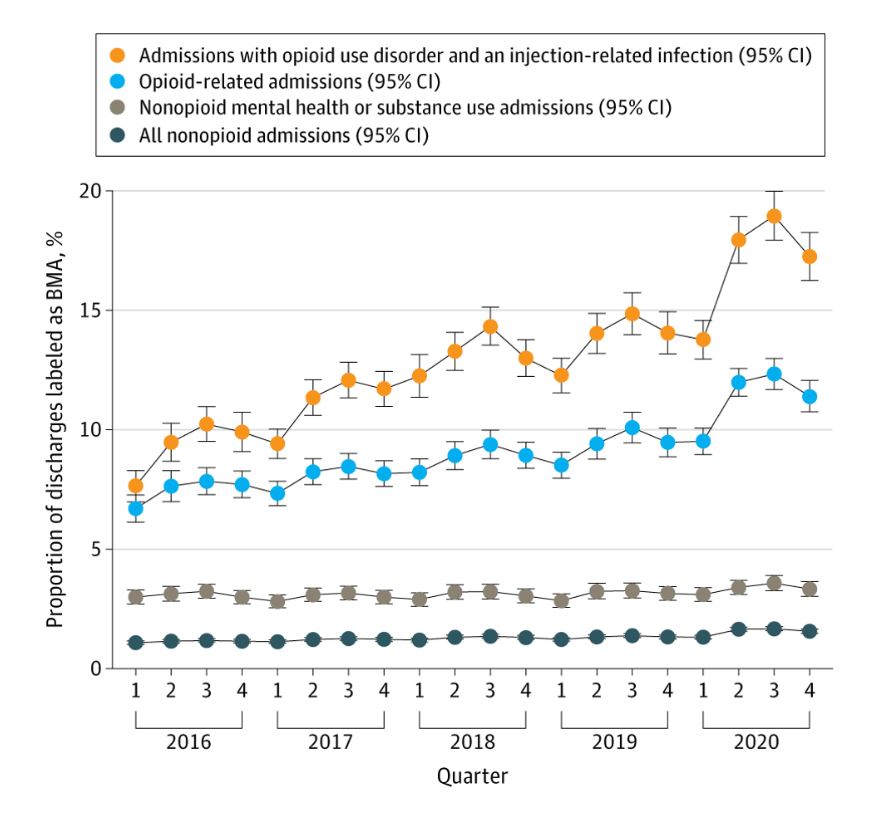4/28/24 at 9:12 PM
Article Recommended by Dr. Don Stader: Trends in Before Medically Advised Discharges for Patients With Opioid Use Disorder, 2016-2020
A recent statistical analysis of national admission data published in JAMA sought to characterize the rates of discharge before medical advice (BMA, also known as Against Medical Advice, ‘AMA’) in patients with OUD during the fentanyl era. Of the hundreds of millions of hospital admissions analyzed from 2016-2020, a cohort for this study was formed by including patients with opioid use, abuse and overdose (OUD) with special attention paid to injection related infection. Data indicated that BMA discharges with all opioid related admissions, OUD and injection related infections increased significantly, while admission for non-opioid related mental health conditions, substance use admissions and non-opioid admissions increased minimally. Notably, amongst the BMA discharges in OUD and injection related infections, most occurred before the peak of withdrawal symptoms at day 3 suggesting untreated or under-treated withdrawal contributed to these outcomes. More randomized controlled trials are needed to establish if adequate medications for OUD treatment reduced BMA discharges in this population.

Key Takeaway:
Previous research has established that hospitalized patients leaving against medical advice increases all-cause mortality. People who use drugs, particularly opioids, are at heightened risk for leaving against medical advice due to chronic pain or withdrawal. Buprenorphine and Methadone have often been underutilized if utilized at all in these situations. Regardless of the admitting diagnosis for patients with OUD, treating their pain, withdrawal symptoms and making sure they are comfortable will undoubtedly increase adherence to treatment and ultimately prolong their lives.
https://jamanetwork.com/journals/jama/article-abstract/2812740?resultClick=1